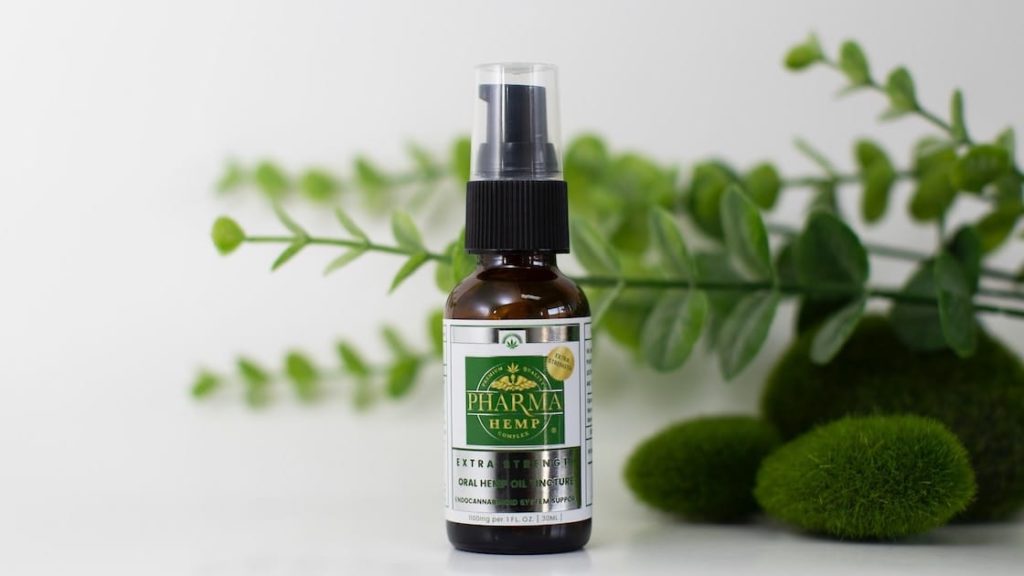What Are the Benefits of CBD?

Ah, CBD. The calming property of cannabis, the sane brother of the THC.
These days, it seems you can find CBD (or cannabidiol, if you want more syllables) in just about anything. Lotions, candy, soda, dog treats…anything. If you go to a cafe, the barista will squirt a few drops of it in your coffee, so long as you ask nicely. Should your dog be walking with a limp, there’s bound to be a dog loving hippie around the corner with a bag of weed kibble for the poky little pup.
The point is, CBD is everywhere and can be added to everything. Yet, a good portion of us aren’t entirely sure why. Is it the cure-all to everyday annoyances? As a massage therapist who offers CBD massage, I’m often asked “does CBD actually do anything?” From my own experiences, from my clients’ experiences, and from what I’ve read on the wrapper of the CBD chocolate bar in my refrigerator, I can tell you that the answer is yes!
But What Does CBD Do?
And do all sentient beings (humans and dogs alike) have the same reaction to it? Let’s list off the benefits of cbd first, and then I’ll get into what you and your dogs should expect!
Pain Relief
This might be the most commonly known benefit of CBD. Often taken in capsule form or applied topically, it has been shown to relieve various types of pain. Of my many clients who live with arthritis, almost all of them use CBD and say it’s more effective than anything they’ve tried. This is because anandamide, a neurotransmitter responsible for pain regulation, binds to the cannabinoid receptors when CBD enters the body. When anandamide levels increase in the bloodstream, the amount of pain a person feels lessens.
There are two important advantages to using CBD for pain relief:
- CBD is not psychoactive
- Unlike the THC compound found in cannabis, CBD doesn’t make you high. Though many of us enjoy that high, plenty of others don’t. Some people don’t experience the floaty euphoria that others do. High levels of THC can cause paranoia in some, which is the last thing you need when you’re trying to treat pain. No need to worry about that with pure CBD.
- CBD isn’t habit forming. With the opioid crisis today, the casual prescribing of narcotics is jarring, to say the least. It’s impossible to overdose on CBD, and it’s a relief to see how common its usage is becoming.
Anxiety Relief
When I’m giving a pre-consultation before a CBD massage, I’m more often than not working with a stressed out client. They’ve heard that it can reduce anxiety, but how? Studies have shown that CBD can stimulate serotonin receptors. Serotonin, known as the happiness chemical, contributes to a person’s sense of wellbeing. CBD has been used to treat everything from generalized anxiety to PTSD.
As was mentioned earlier, CBD isn’t addictive. Using it for stress relief can be a less risky alternative to anxiety medications. While anxiety medications are effective for many, others may experience unpleasant side effects. Bad side effects alone are a problem, and combining that with addiction is even more detrimental.
Promote Restful Sleep
When pain and stress levels decrease, you’re more likely to get a better night’s sleep. If you’re like most people, then you probably have trouble sleeping at least once a week. The importance of sleep can’t be emphasized enough! Quality of sleep has a significant impact on brain health and daily functioning.
Improve Skin Health
Due to its anti-inflammatory properties, CBD can be a great addition to your skin care regimen. Studies show that it can reduce excessive sebum production, making it an effective agent against acne.
And if you’re prone to dry skin, stay moisturized with natural CBD oil! In addition to hydrating skin without clogging pores, pure CBD oil is a safer alternative to typical skin care products you find at stores. Just read the ingredient label on the name brand stuff — that list of unpronounceable chemicals should be enough to convert you! Go natural. Parabens and synthetic dyes are for suckers.
Seizure Treatment
Here’s a little history lesson! Back in the dark ages when marijuana was illegal everywhere in the US, there was a growing movement to decriminalize the drug for medical usage. In prehistoric 1996, California approved the Compassionate Use Act and became the first state to legalize medical marijuana. One of the motives for this proposition was evidence that cannabis can be used to treat epilepsy.
Studies have shown that CBD relaxes the autonomic nervous system; the body’s control system that regulates involuntary functions. When used therapeutically, CBD can reduce (and in some cases eliminate) the frequency of seizures in patients with epilepsy. And these studies aren’t new at all. Neurologists were using cannabis in the late 19th century to treat epilepsy, and there is evidence that it was being used for that purpose thousands of years earlier. Its usage only declined when all those legal restrictions reared their ugly heads in the 20th century. Way to go, unnecessary laws.
What to Expect
Five benefits have been listed and with time we may uncover even more, now with cannabis being medically legal in 33 states and recreationally legal in ten.
But does everyone respond to CBD in the same way? From research and my own experience, the answer is no.
When each of my clients receive their first CBD massage, the reactions vary among them. Some are relieved from pain and stress during the session, some feel it hours later, and some report not feeling much of a difference at all. That being said, all of them have reported sleeping very well after a CBD session with me! But even so, that’s just a small sample of people I know personally. Are you guaranteed to get the best sleep of your life after a CBD body work session?
Everyone has their own tolerance level. One person can feel the effects after a 10 milligram dose, another might require 200 milligrams for the same result. But why?
There Are Many Possible Factors:
- Frequency of usage
- Some people find that after using CBD on a daily basis, they eventually feel the therapeutic effects. Maybe you just need to be patient.
- Method of delivery
- If you’re not getting the desired result from topical application, try a different method. You can ingest it in food, drink, or capsule form. And… you can smoke pure CBD, but I wouldn’t recommend that. Be kind to your throat and lungs.
- Your body chemistry
- Genetics, body type, metabolism, etc… they can all affect your reaction or lack thereof to cannabis.
So, is CBD worth a try? Decide for yourself! This is Colorado afterall, so the odds of you living next to a dispensary are high.
Written by: Katrina Jenkins, LMT
Photo Credit: Photo by Pharma Hemp Complex on Unsplash
References: https://www.safeaccessnow.org/californias_medical_marijuana_laws

Katrina Jenkins
Author, Licensed Massage Therapist
Katrina Jenkins graduated from Towson University in 2013 with a Bachelor’s Degree in Health Science and worked as a nurse’s aide briefly before pursuing her true passion. She graduated from the Massage Therapy Institute of Colorado in April 2016 with honors and completed the Touch of Healers Scholarship Program the following summer. She has been a part of the Moyer Total Wellness Team since the summer of 2017.
Resources
“California’s Medical Marijuana Laws & Regulations.” Americans for Safe Access, www.safeaccessnow.org/californias_medical_marijuana_laws.
Perucca, Emilio. “Cannabinoids in the Treatment of Epilepsy: Hard Evidence at Last?” Journal of Epilepsy Research, vol. 7, no. 2, 31 Dec. 2017, pp. 61–76, www.ncbi.nlm.nih.gov/pmc/articles/PMC5767492/, 10.14581/jer.17012.
Photo Credit
Photo by Pharma Hemp Complex on Unsplash
